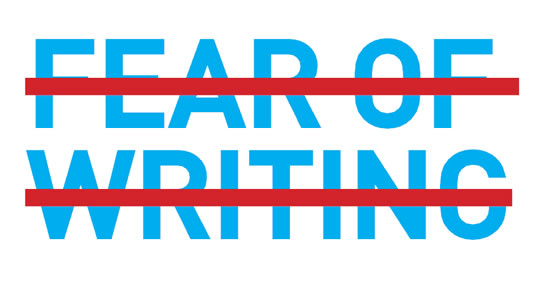This is an important question, but often it is asked for all the wrong reasons – and with a misguided notion of the true nature of writing.

Many parents, realising the demands that will be placed on their children in the ridiculously competitive educational environment we have created for them, ask the question as a way of creating ‘the Edge’. If I can teach my child to write before his/her peers he/she will have an advantage.
There is no doubt that a child who can read and write early has a life-long advantage over others of the same age. Research shows that children entering Primary 1 or its equivalent with superior language skills tend to remain ‘ahead of the curve’ throughout their educational careers – and beyond. No surprise there.
When preparing our children for life-long success, however, a more important first question is: ‘What, exactly, is writing?’ Writing is far more than ‘penmanship’; it is far more than being able to translate sounds to text – it is the ability to communicate the ideas and images inside my head to people I may never meet.

I have written almost 300 books, but I never get bored with the act of writing, because, from Day One, I learned how much fun it was to have ideas and share them with others – first verbally, then in writing.
The mechanics of writing – the tools for turning sound into symbol – were a small and relatively simple part of the process, and the fact that I needed to master them in order to share what was inside my head gave me all the incentive I required.
This is the feeling – the drive – that I have always tried to instil in the children I have taught to write over the past 40 years, and when I was asked to work with the MindChamps team to develop the ‘MindChamps Writing’ program, it was the basis of the approach we developed.
Unless we understand what it is we are expecting of our children – unless we understand what is involved in creating a life-long, enthusiastic writer – ‘hot-housing’ them in ‘writing’ can do more harm than good. As far as small children are concerned, the mystery and magic; the excitement and pleasure they should be feeling as they learn to master the written word can easily be destroyed, if we make learning to write a demanding, confusing and frustrating ordeal. Unfortunately, for many children, this is exactly what it becomes.
After twelve years of schooling and, often, even a tertiary education, many people still struggle to write effective, grammatically correct English. To most adults, the idea of writing, although they have done it throughout their lives at school, is still a foreign concept. There is a ‘disconnect’ between them and the act of writing. To many, writing is a chore only attempted when there is no avoiding it.

Research shows that even the thought of writing creates anxiety, and that some people will even avoid applying for a job if it involves writing.
Anything as complex and varied as language is learned most effectively through guided experience and positive modelling. There are too many elements for us to effectively ‘memorise’ them, unless we immerse ourselves in the language as a whole, so a drill approach to grammar and writing is doomed to failure for the vast majority of children.
The answer, therefore, is to design a program that focusses on the key tools of language and writing in context, so that it becomes the model which the child absorbs – not through drill, but through the ‘hands-on’ use of the ‘nuts and bolts’ of the language. This requires an intimate understanding both of the act of writing and the art of teaching.
In designing the ‘English Writing’ program we designed a toolbox of 21 ‘tools’ for writing, divided into 6 ‘compartments’:
Syntax Construction Tools
Language Enhancement Tools
Planning and Structuring Tools
Story-Building Tools
Polishing Tools
Higher-Order Thinking / Socialising Tools
Just as learning to read is so much more than mastering ‘phonics’, so learning to write is – or should be – an adventure in playing with language; in experimenting with and experiencing how the words on the page represent ideas and stories, characters and emotions. To create enthusiastic users of language, we must make reading and writing more fun than anything else in their lives!
Article by Mr Brian Caswell, MindChamps‘ Dean of Research & Program Development

